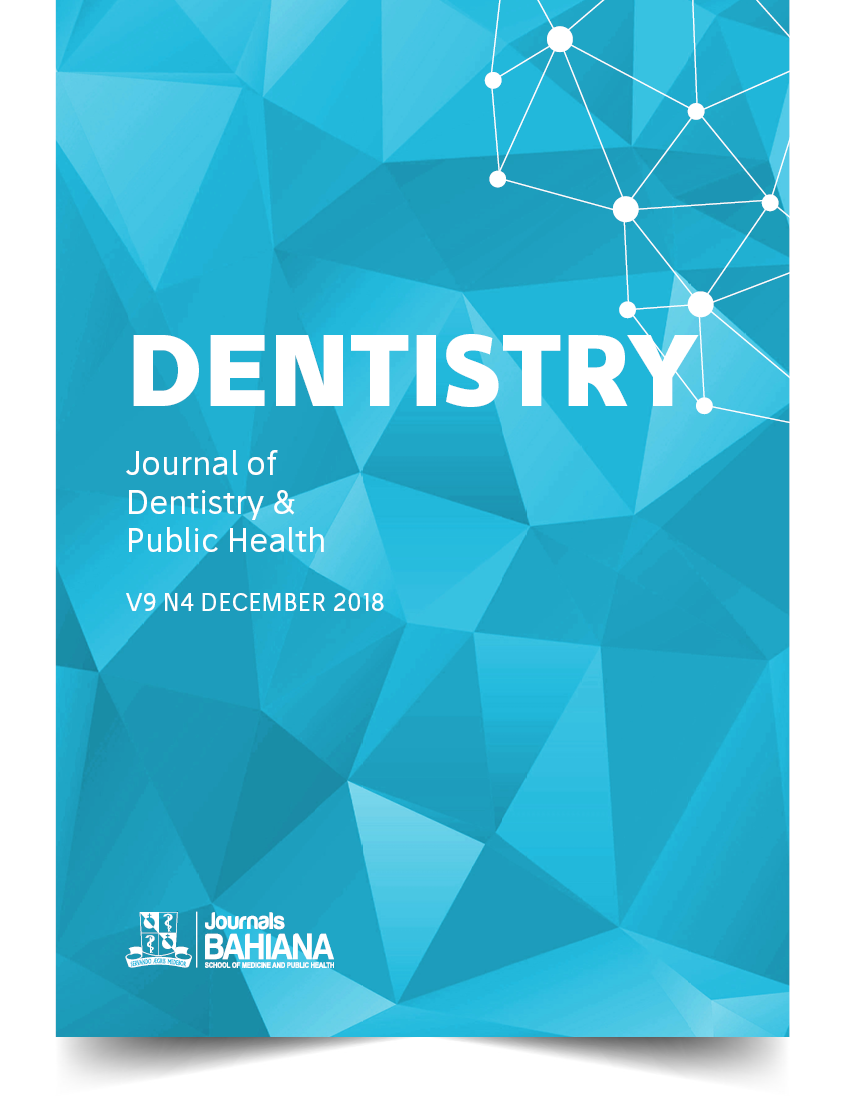Tradução e validação para a lingua portuguesa de um instrumento de alfabetização em saúde bucal
DOI:
https://doi.org/10.17267/2596-3368dentistry.v9i4.2113Palavras-chave:
Saúde Bucal. Alfabetização. Adulto.Resumo
Introdução: A quantificação do nível de alfabetização em saúde é um aspeto fundamental para a saúde pública, uma vez que os indivíduos que apresentam níveis limitados de alfabetização em saúde possuem dificuldades significativas em comunicar com sucesso na sociedade atual. Objetivos: Traduzir e validar a versão na língua portuguesa do Oral Health Literacy Instrument (OHLI) para avaliação da alfabetização em saúde bucal de adultos. Materiais e Métodos: A tradução e validação da versão na língua portuguesa do OHLI foi realizada em indivíduos com idade superior a 19 anos na região de Lisboa. Foram analisadas variáveis de caracterização da amostra e de alfabetização em saúde. O valor total do OHLI foi obtido pela soma das dimensões de leitura, compreensão e habilidade para contar. A consistência interna foi avaliada pelo ? de Cronbach, a validação do constructo foi efetuada pela análise fatorial das questões de uma mesma dimensão e a aplicação do teste estatístico Kaiser-Meyer-Olkin. Resultados: Dos 81 entrevistados, 76,5% eram mulheres. Obtiveram-se valores elevados de consistência interna, tanto para o OHLI (0,8) como para as suas dimensões (0,7). Para o teste de conhecimentos foi obtido um valor de 0,70. O valor final médio do OHLI foi de 81,21 tendo-se observado valores mais elevados nas pessoas com habilitações escolares superiores (p<0,001). Conclusões: A versão na língua portuguesa do OHLI (P-OHLI) é um instrumento confiável e válido e pode ser aplicado em adultos de língua portuguesa, com as adaptações necessárias à identidade cultural, para avaliação da alfabetização em saúde bucal.



